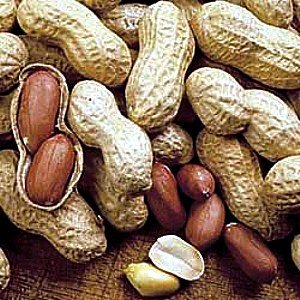U.S. beef exports set new records in August with export value topping $750 million for the first time, according to data released by USDA and compiled by the U.S. Meat Export Federation (USMEF). August pork exports were fairly steady with last year’s volume, but retaliatory duties in key markets continued to pressure pork export value. August beef exports totaled 119,850 metric tons (mt), up 7 percent from a year ago, valued at $751.7 million – up 11 percent year-over-year and easily exceeding the previous record of $722.1 million reached in May 2018. For January through August, beef exports totaled 899,300 mt, up 9 percent from a year ago, while value climbed 18 percent to $5.51 billion. August exports accounted for 13.2 percent of total beef production, up from 12.5 percent a year ago. For beef muscle cuts only, the percentage exported was 11.2 percent, up from 10.4 percent last year. For January through August, exports accounted for 13.5 percent of total beef production and 1...
 Georgia's tobacco and pecan crops are on pace for a surprisingly good year, but above-normal temperatures have taken a toll on peanuts and cotton. Pecan trees are alternate-bearing, meaning they produce a full crop every other year; most trees in Georgia are on the same cycle and this was supposed to be an "off" year for pecan production, but Georgia farmers will likely produce 75-80 million pounds, double what has been produced in other off years. Extreme heat in July and early August hurt peanut plants' ability to set peanut pods. Yield is expected to be 3,300 pounds per acre, or 7 percent less than last year. [University of Georgia Cooperative Extension]
Georgia's tobacco and pecan crops are on pace for a surprisingly good year, but above-normal temperatures have taken a toll on peanuts and cotton. Pecan trees are alternate-bearing, meaning they produce a full crop every other year; most trees in Georgia are on the same cycle and this was supposed to be an "off" year for pecan production, but Georgia farmers will likely produce 75-80 million pounds, double what has been produced in other off years. Extreme heat in July and early August hurt peanut plants' ability to set peanut pods. Yield is expected to be 3,300 pounds per acre, or 7 percent less than last year. [University of Georgia Cooperative Extension]
 Georgia's tobacco and pecan crops are on pace for a surprisingly good year, but above-normal temperatures have taken a toll on peanuts and cotton. Pecan trees are alternate-bearing, meaning they produce a full crop every other year; most trees in Georgia are on the same cycle and this was supposed to be an "off" year for pecan production, but Georgia farmers will likely produce 75-80 million pounds, double what has been produced in other off years. Extreme heat in July and early August hurt peanut plants' ability to set peanut pods. Yield is expected to be 3,300 pounds per acre, or 7 percent less than last year. [University of Georgia Cooperative Extension]
Georgia's tobacco and pecan crops are on pace for a surprisingly good year, but above-normal temperatures have taken a toll on peanuts and cotton. Pecan trees are alternate-bearing, meaning they produce a full crop every other year; most trees in Georgia are on the same cycle and this was supposed to be an "off" year for pecan production, but Georgia farmers will likely produce 75-80 million pounds, double what has been produced in other off years. Extreme heat in July and early August hurt peanut plants' ability to set peanut pods. Yield is expected to be 3,300 pounds per acre, or 7 percent less than last year. [University of Georgia Cooperative Extension]